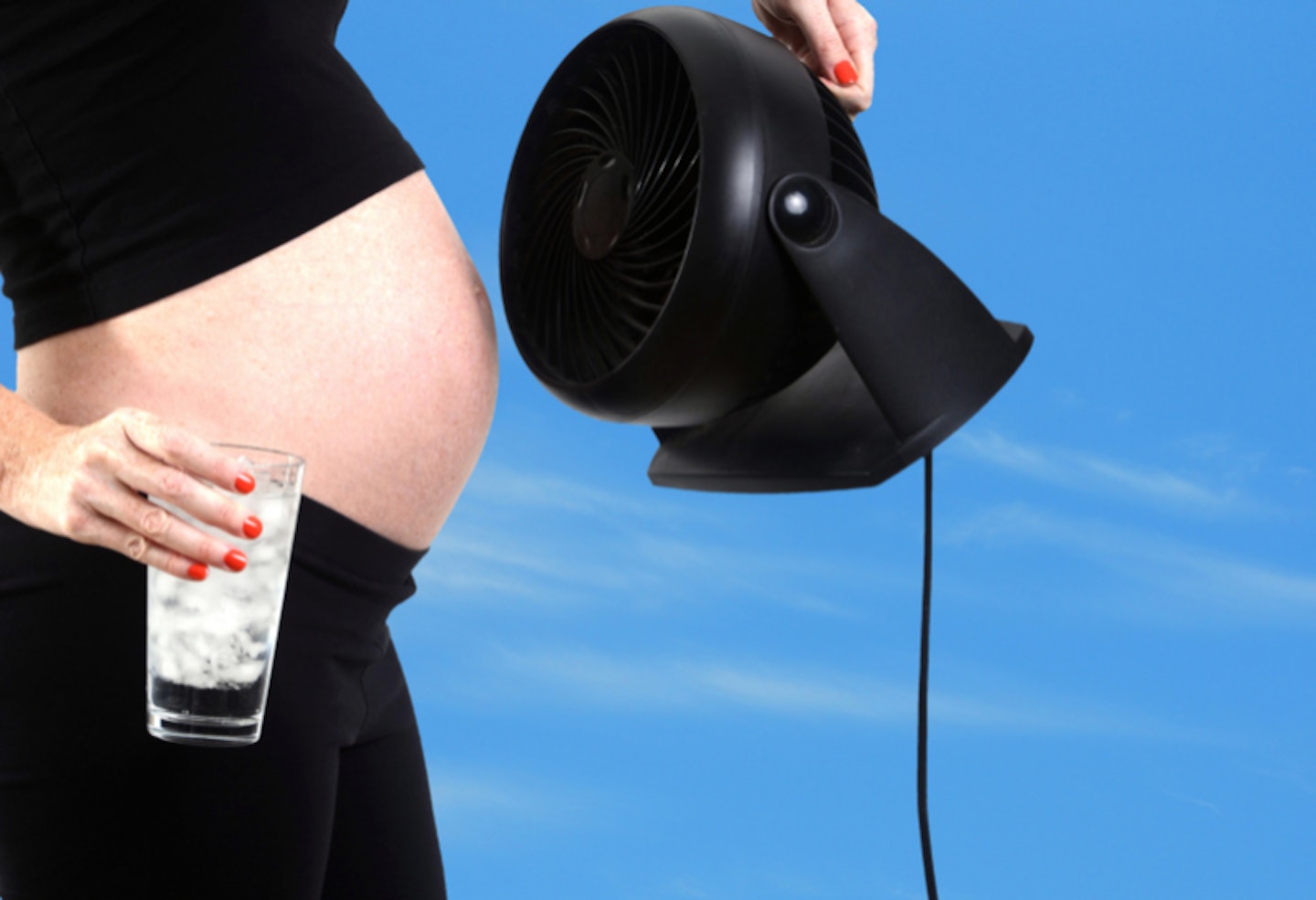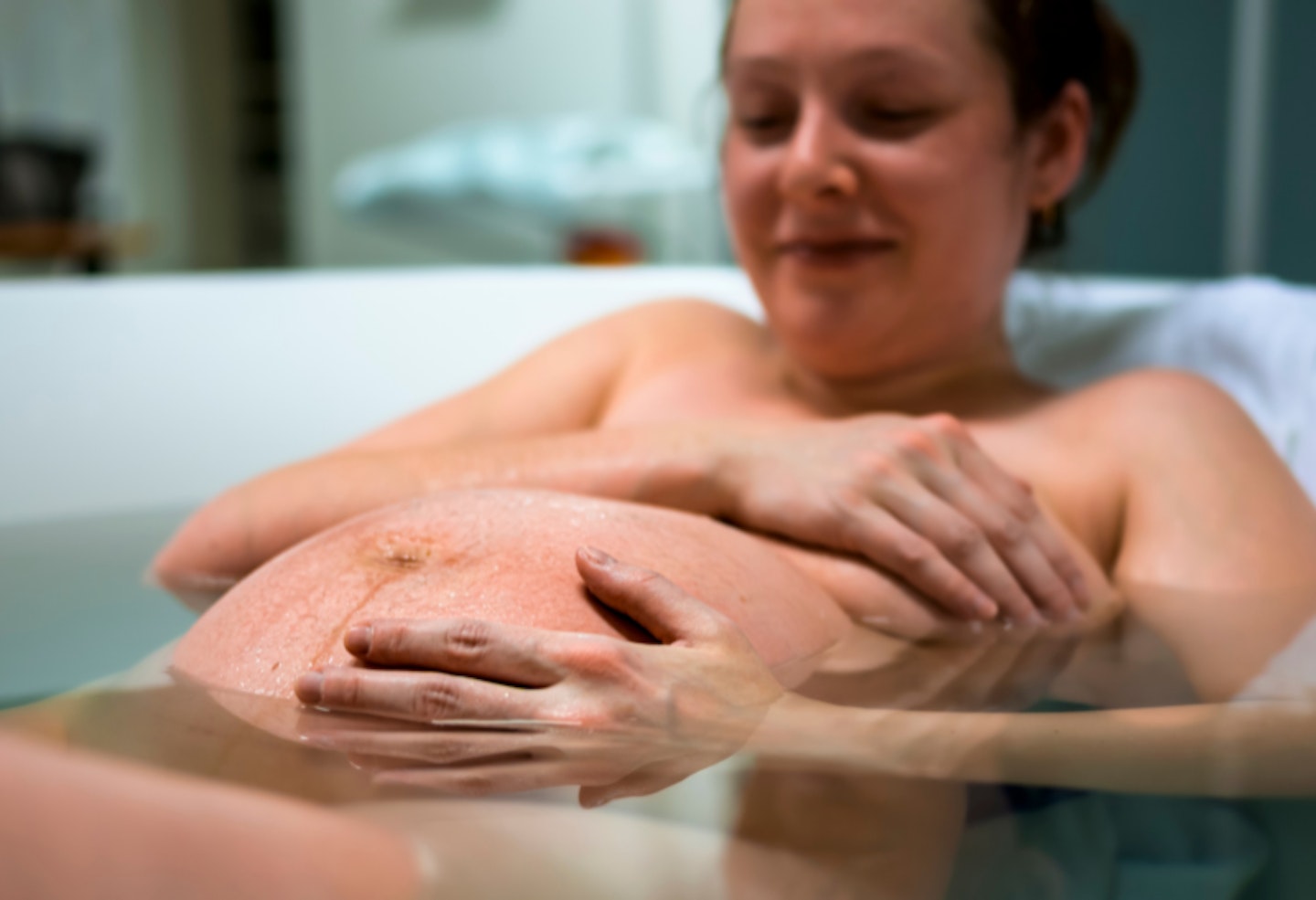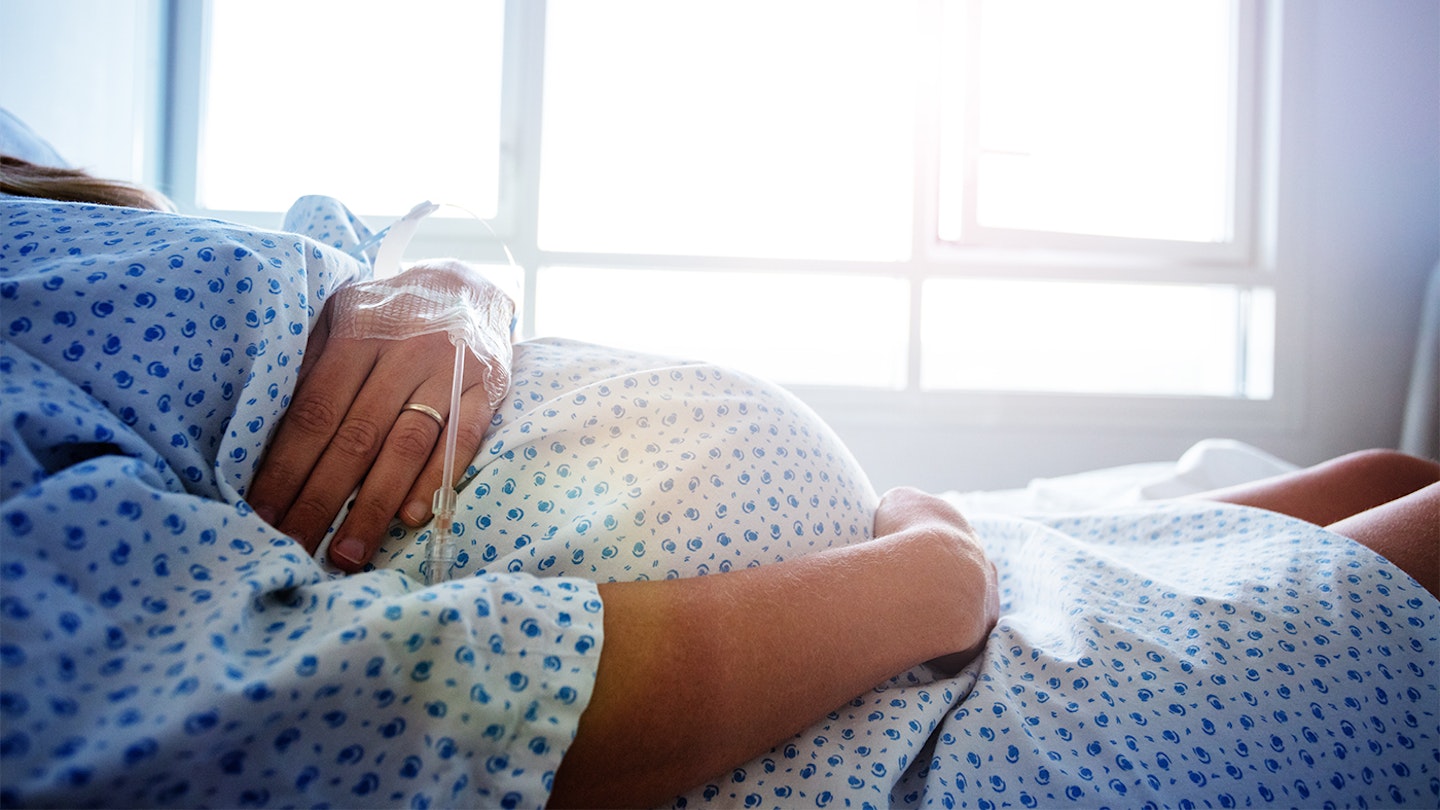A hot summer can make pregnancy uncomfortable, but what about labour? Giving birth when the weather is hot can be a daunting prospect and you might be worried about how to stay cool during labour. Read on for our tips and advice to avoid getting too hot when giving birth.
Why are labour wards so hot?
Whether it is winter or summer, hospitals in general tend to be on the toasty side for obvious reasons - no one is going to feel better if they're feeling chilly. Labour wards in particular are always a few degrees warmer as newborn babies can easily lose heat from their bodies when they're born. So while it might seem a little crazy to have the heating on during the summer (not to mention VERY uncomfortable for us mums), it's all to keep your baby safe and healthy.

Ways to stay cool during labour
If you're due in the summer months, you'll want to equip yourself with the best ways of keeping yourself cool during labour, as it's pretty tiring work!
Wear cool clothes - Wearing light and loose clothing will help your skin to breathe. We particularly love a nice oversized linen shirt for the summer! The NHS suggests wearing loose clothes, ideally made of cotton, to help you feel cool. Wearing tight or synthetic material will only make you feel warmer and might not be very practical or comfortable during labour.
Fans - There should be a fan in your room which you should ask to be kept on until your baby arrives. It might also be worth taking your own handheld fan too to keep you extra cool. If you can get your hands on an ice pack, it's often a good idea to place this in front of the fan to keep the breeze cool.
Keep the sun out - Close the blinds or curtains if you have them to keep the sun out, especially if the sun is shining directly onto the window as it's only going to make things hotter!
Windows - If you're lucky enough to be in a room with windows, keep them opened until your baby arrives.
Water sprays - There are plenty of cooling face mists on the market that can provide a quick boost of cool when you really need it. It is definitely worth adding one to your hospital bag.
Stay hydrated - Make sure you drink plenty of water. It's a good idea to bring a flask of water as it will stay nice and cold despite the hot temperatures. Plus, use a straw, it will make sipping water during labour much easier.
Bobbles and headbands - There's nothing worse than you hair getting stuck to your sweaty neck or face so grab a bobble and get those locks tied up into a comfortable bun.
Cool snacks - Send your birth partner out to get you a nice cooling and fruity ice lolly or ice pop to suck on during labour. Refreshing snacks will cool you down, help with hydration and give you energy. Or simply using some ice will also help, if you don't fancy fruity flavours.
Cold flannels - A nice cold flannel on the head or on the back of the neck is a good way of keeping cool. Ask your birth partner to regularly soak the flannel in cold water to keep it nice and cold.
Cool water - Taking a cool, or tepid, shower or bath, is a good way to cool down. Water is also a great way to relax and ease pain. If you are having a home birth, you could even try using a paddling pool to keep cool in the early stages of labour.

Your body is already working harder to stay cool, as you will know if you have suffered any hot flashes during pregnancy, plus this is made worse if the weather is hot too. First and foremost, the warmer you are, the more difficult labour is likely to feel - a bit like hiking up a mountain during a heat wave. The good news is that it should be pretty easy to cool down if things get too much.
If your temperature rises too much, your heart rate will increase and so will your baby's. But try not to worry - your midwife will be keeping a close eye on you, and if your heart rate is on the rise due to being too hot, they will make sure you're cooled down effectively.
Do you get hot when going into labour?
Your body temperature shouldn't rise when you go into labour, however, sometimes women might experience hot flashes, and this is more likely in the later stages of labour. However, labour is hard work and it will make you feel hot so it's good to be prepared.
Lorna White is the Products Editor for Mother&Baby. After running the Yours magazine website, specialising in content about caring for kids and grandchildren, Lorna brought her expertise to Mother&Baby in 2020. She has a keen interest in a range of topics from potty training and nutrition to baby names and early development and has a wide range of experienced medical experts and professionals at her fingertips. In her spare time, she enjoys spending time with her two young sisters, dog walking and enjoying the outdoors with her family.
